What Families Can Expect from the Burning Tree Ranch Program
People who suffer from chronic relapse are not the only ones who suffer from addiction…
Families do too.
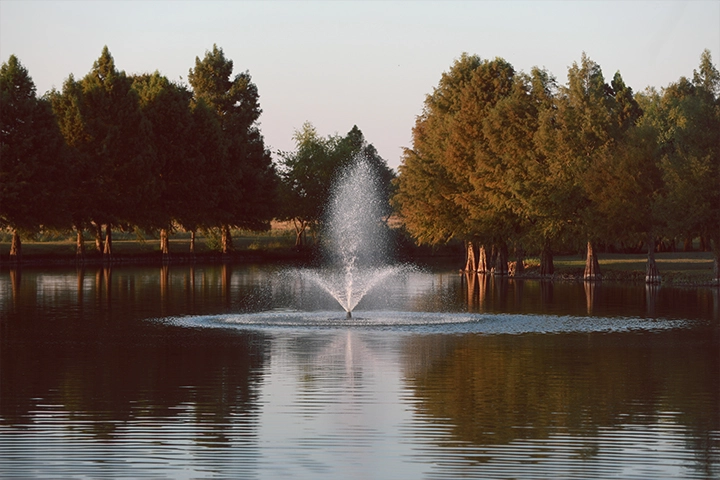
It is an uncomfortable reality to be repeatedly confronted with relapses, dashed hopes, and ever worsening consequences. It can also be uncomfortable for the family to change its response to the addicted loved one’s behaviors, crisis, and misadventures. Afterall, once the family system acclimates to living with addiction, and all the attendant craziness attached to it, each member grows familiar with the patterns, the responses, and the roles they’ve been assigned. Before long, it becomes normal. Painfully so.
At Burning Tree Ranch we invite our families to develop a deeper relationship with honesty. We ask them to explore where the disease of addiction has brought them to. We then invite them to prepare for the uncomfortable process of doing things differently.

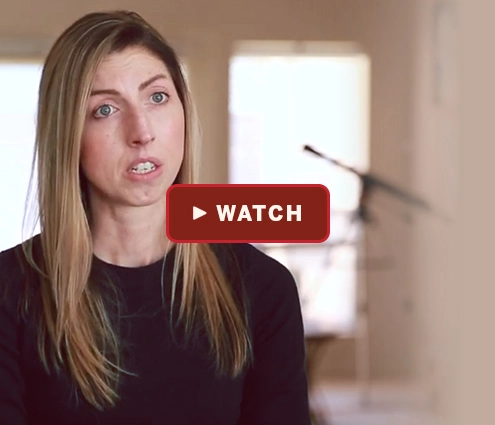
Marlena H.
My recovery is miraculous, I never thought that I would make it, I never thought that I'd be sober.
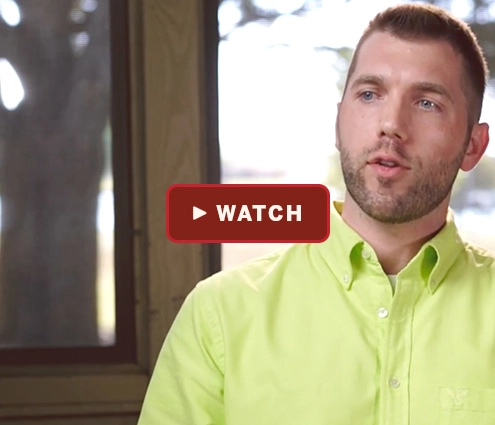
Drew M.
Prior to coming here I watched a person that I care deeply about have their life saved by this program.
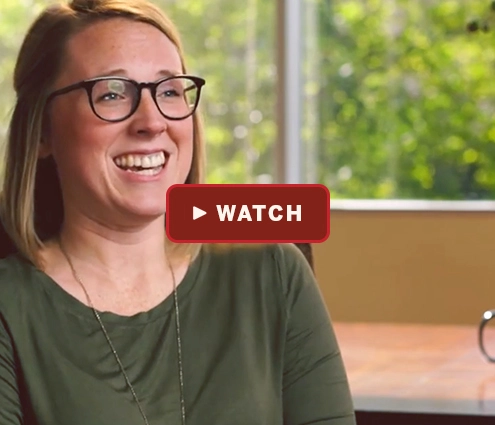
Claire C.
The burning tree program is hard, hard on you and the family, but not nearly as hard as addiction.
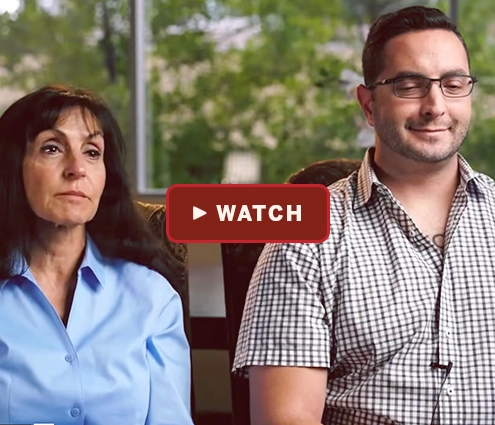
Jeannie & Vincent J.
They gave us the tools we needed to set up our boundaries with Vincent, they taught us how to say no.
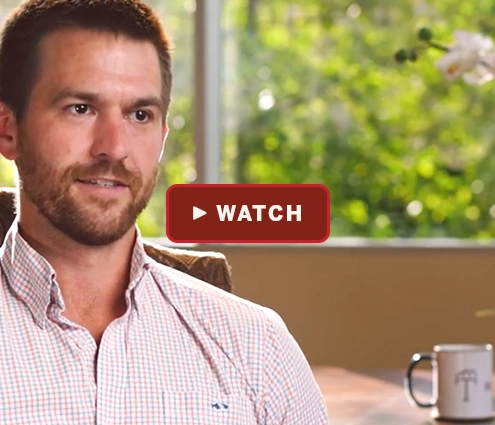
Jack B.
It was as much about life skills as it was about treatment. The aftercare program put a lot of emphasis on being self sufficient.
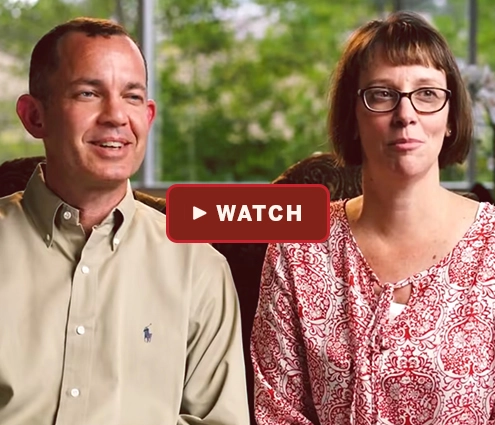
Ken & Spouse
Why didn't we get to Burning Tree sooner, for 7yrs. we were in and out of treatment centers that didn't work.
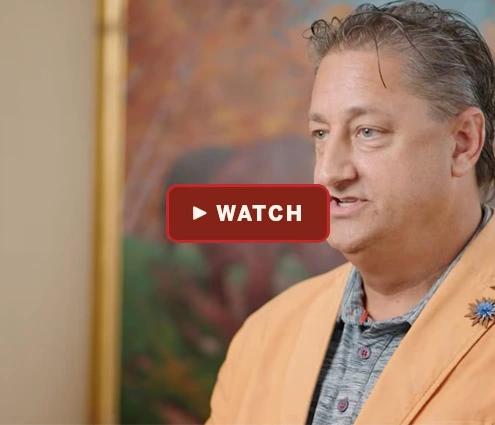
Eric Button
Long-term treatment is exactly what I needed to realize I am worthy of being hopeful.
Treating Addiction as a Family Disease
Addiction may seem like a self-contained affliction, but it impacts those around the addict and alcoholic profoundly. Addiction is proven to wreak havoc upon families emotionally, financially, and physically. In many cases, it destroys families entirely.
To evade feelings of guilt and shame, some families unwittingly contribute to their loved one’s addiction by making well-intentioned gestures such as lending money, making excuses, lying for and covering up behavior. Sadly, this only prolongs the chronic relapser’s suffering, and the family’s too.
Most family members — whether a spouse or a parent — feel compelled to help their loved ones, yet they end up feeling helpless and powerless over what their loved ones are doing. Sometimes they redouble their efforts at helping only to make matters worse. Now they are burned up and resentful as the addict or alcoholic continues forth with the same behaviors that continue to cause so much harm.
The Family system is in disarray. Behaviors like manipulation, dishonesty, enmeshment and codependency abound. The addicted loved one is dishonest, and so is the family. They hide secrets, don’t talk, and sometimes start using and drinking themselves to cope with the overwhelming feelings of hopelessness, anger and despair.
As the addicted loved one manifests crisis after crisis, the family feels obligated to respond with ever increasing urgency. As one fire is put out, another quickly develops. There is very little rest for the family of a chronic relapser. We want this to change.
Joel H. Father to Marlena - Burning Tree Ranch Alumna

A LETTER FOR FAMILIES FROM THE MOTHER OF AN ALUMNI
Hear first hand experience from Lisa M., the mother of a Burning Tree Ranch Alumnus
Dear Families,
I once heard a speaker talk about sitting in front of the ocean and trying to stop the waves from crashing on the shore - that this is what powerlessness felt like. While the speaker was talking about their drinking and powerlessness over alcohol, I could relate to what he was saying. I was powerless over someone else’s drinking, and while I tried so hard to stop them, the waves kept coming and coming, no matter what I did or how hard I tried. It was only when I gave up trying to be the solution, trying to be their solution, that things changed.
They say the things you focus on become your higher power. My husband and his disease was my higher power. I was addicted to fixing him - if only he would stop drinking I would be OK, everything would be OK. I was vigilant - watching his every move and behavior - so attuned to his drinking that I knew what to expect of him simply by the level of liquid in the bottle. I tried everything to get him sober and in my heart, I knew I could find the right words to get him to stop drinking so I talked to him all the time. Enabling, manipulating, bargaining, judgment, rescuing, punishment, retaliation - this was the language of our relationship.
My life was solely focused on getting him to stop and the misery of what it was like when he kept drinking. I took responsibility for his drinking: “If I were smarter, prettier, more successful he wouldn’t drink.” I judged and condemned him for his drinking: “He’s the one with the problem and if he’d just get it together we would be fine”. We were both lost in his alcoholism.
The more I tried to fix him the farther away that possibility became. The more afraid I was to lose him, the farther gone he was. I often wondered where we had gone - the two people with so much hope and promise that were standing at the altar the day we got married - they were lost.
My strength and hope was in Alanon. There I learned that I didn’t cause it, I can’t control it and I can’t cure it. I learned that the disease is a family disease and often the behavior of the non-drinker is crazier than the behavior of the drinker (while I didn’t like the idea, it was true in my case). I learned to separate the disease of alcoholism from the person so that I could hate the disease, but love the person.
I learned that I could love, understand, encourage and support without enabling. I learned that I wasn’t alone. I connected with a higher power. In reading Al Anon literature and the big book, I found us, my husband and me, among the pages of those books. I listened to open AA speakers and learned compassion born of understanding. And I learned that I was not equipped to help my husband - that I couldn’t make him stop drinking and that his recovery was his business and my recovery was mine.
By the time he reached Burning Tree Ranch, we were both in a state of surrender. I had given up - I knew that I couldn’t fix him, but I also knew that I couldn’t bear to see him suffer. I laid down my sword and followed the direction of the Burning Tree staff - it was a Step 3 moment. I was relieved that he was safe, but knew that the work he had to do was his work, not mine and left him to the process, the counselors and experts at Burning Tree.
I respected the rules and did what was asked of me. I knew that I had already lost him and it was only in surrendering him to the Burning Tree program that we had a chance of coming together again. When he embarked on his journey at BTR, we had been married 13 years. We are about to celebrate our 31st anniversary.
BTR gave us a new start - when he graduated, we became newlyweds - starting our life together over. It was strange at first, almost like we had never met even thought we had been married for well over a decade, but BTR and the programs of Alcoholics Anonymous and Al-Anon gave us the tools and language to (re)build our life together - grounded in recovery and speaking the language of the heart.
With gratitude,
Elisabeth K
A LETTER FOR FAMILIES FROM OUR CLINICAL DIRECTOR
A sincere message for families of loved ones entering our program.
Dear Families,
I often meet you after the whirlwind that ends with your loved one arriving at Burning Tree Ranch. I meet you in the space between relief that your loved one made it into long term treatment and fear that they won’t stay long enough to accept the help being offered. It is in this space that our treatment team will begin construction of something new with you. But remember - new construction takes time and growth is sometimes painful.We talk with our families at length about how time is one of our greatest gifts at Burning Tree Ranch. We know that 30-, 60- and 90-day treatments have not worked for our clients. If it did they would have been sober already. While there are people who can get sober in those facilities, our clients just aren’t those people.
When working with families, I often reference this odd form of amnesia that possesses the alcoholic and addict. It is baffling to watch someone be so desperate and distraught after burning it all to the ground and then, sometimes within days, be equally as convicted that they can control it, or it wasn’t that bad. I see families have this same amnesia. Families share the same desperation when trying to get their loved ones to treatment and become equally as convinced that the client is doing well despite a professional clinical team stating otherwise. The client will begin to look better physically, begin to sound better and start to believe that maybe 6 months is long enough. Families will start to question if Aftercare is really that important despite their loved one’s history of doing well in all those other treatment centers only to relapse a short while later.
Early on we begin to talk with families about their participation in the disease and most will, without fail, provide assurances that they are committed to doing what we ask of them. Then, as the client begins to have feelings, to be held accountable, and as their disease begins to ramp up, we will hear families start to defend their loved one, to ask for exceptions; some even begin to question the processes and approaches we have here.
At Burning Tree Ranch, we will ask that you begin participating in treatment the way we believe you need to. We are going to ask that you trust the process and follow the direction of the treatment team. We are going to ask that you attend a series of activities like a Family Workshop, Family Program, etc. and begin participating in Al-Anon. We will begin to confront ineffective family dynamics in real time, even if they are uncomfortable for you. We view this as a life and death errand and frankly, we are okay with you and your loved one being uncomfortable.
What we know to be true is that you love your addict/alcoholic. What we also know to be true is that the disease of addiction takes love and uses it as a weapon. Sadly, we have seen many families literally love their addict/alcoholic to death. At Burning Tree Ranch, we are going to ask that you let go of your control, hand us the reins and follow direction. This will be difficult at times. There will be moments when you may not want to do what we are asking you to do. But even when it's hard, we are going to ask that you support our process - and do it anyway.
We aren’t for everyone and we understand that, but, we do have a way - and it is a way that works.
Sincerely,
Meghan Bohlman, LPC, LCDC, EMDR Trained
Clinical Director - Burning Tree Ranch
Separation And The Journey Of Healing
To treat addiction as a family disease, there needs to be separation from the addicted loved one and the rest of the family members. The first thing Burning Tree Ranch asks is for the family to establish some form of separation. We do this with limited phone calls and limited contact. We ask that topics of discussion during this period be restricted to “news, sports, and weather.”
As the separation begins to occur, it allows both sides to begin their own healing journey. Each person, the family member and the client, begin working on their personal recoveries independent of one another.
What sometimes happens to family members once their loved one enters long-term treatment is that they begin to lose their sense of identity and purpose in the relationship. They feel a void or loneliness because their primary role as enabler, fixer or codependent is no longer needed.
This is when we see the family begin to act out with their own unhealthy behaviors. As feelings of guilt, shame, or fear come to the surface, the family member may want to avert these feelings by buying gifts, showering praise, or dismissing past injuries in hopes that doing so will mitigate the addicted loved one’s discomfort. In other words, they try to make things all better, and they try to control. This is not what the chronic relapser needs. This is not healthy behavior.
We encourage our family members to actively participate in Al-Anon and Families Anonymous. Just as their loved one is expected to participate in the twelve step program of Alcoholics Anonymous, we expect our families to participate, too. We also ask that family members attain a sponsor, a home group, and that they begin working all twelve steps with their sponsor immediately.
Our families were generally quick to answer the crisis call for their loved ones in active addiction. We ask that they apply that same sense of desperate urgency to their own personal recoveries. When they do, the outcomes are not only better, they are sustainable.

Olivia Wilder of Burning Tree Programs On How To Achieve Great Success After Recovering From An Addiction
When people are trapped in a severe addiction it can feel like there is no way out and there is no hope for a better future. This is of course not true. Millions of people are in recovery from an addiction and they go on to lead successful, fulfilling and inspiring lives.
Authority Magazine started a new series about women who were able to achieve great success after recovering from an addiction. The premise of the series is to offer hope and inspiration to people who feel trapped in similar circumstances.
As a part of this series we had the pleasure to interview Olivia Wilder. Olivia Wilder serves as Director of Admissions for Burning Tree Programs, and is responsible for helping execute the organization’s vision of excellence, Olivia leads a talented team of admissions specialists dedicated to Burning Tree’s philosophy of “creating a life of excellence beyond sobriety.”
Olivia serves as the chief clinical liaison between families/clients and the executive & clinical director of each of Burning Tree’s 3 programs. Not only is she a leader within the Burning Tree organization, she has been sober since 2014 and is a proud alumna of Burning Tree Ranch. Trained in multiple intervention disciplines, Olivia utilizes mindfulness, DBT skills, and a solutions-focused approach to help achieve dynamic results on behalf of the...
What Happens to Families as Their Loved Ones Stay in Treatment
As the alcoholic or drug addict begins to change and find a solution to their problems, family members start to get their personal lives back.
Once both sides become more healthy, the treatment team starts to integrate the two back together.
In the first few months of a client’s stay at the Ranch, the treatment team will work with the family to help them set boundaries, and become established in their own recovery routines. Then, in a workshop setting, the treatment team and family will learn how to work together to provide the best possible treatment for the client.
Burning Tree holds its Family Workshop every six weeks. This workshop helps the family learn more about the Burning Tree process, while determining what hasn’t worked for the family in the past and what could work better in the future. This workshop assists family members in establishing a new set of beliefs about the family system and challenges them to more deeply explore how to approach life together differently.
We often ask our families during these encounters, “What are you willing to do to get what you say you want?”
Once we can establish the family members’ commitment to the therapeutic process at Burning Tree Ranch, the family begins to integrate again.
Independent Recoveries
Family members and their loved one will emerge from the Burning Tree Ranch experience as independent people with independent programs and recoveries. They will learn to express their support and love in a more healthy way, which will be specific to each unique family system.
They will no longer burn up energy foolishly in an attempt to evade, control, or mitigate a relapse. Instead, they will be responsible for themselves, and themselves only. They will learn how to say no when they mean no, and yes when they mean yes. Communication will become more clear, more direct, and more authentic. Taking things personally and making assumptions will fall by the wayside.
